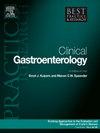人工智能在食管鳞状细胞癌早期筛查中的应用
IF 3.2
3区 医学
Q2 GASTROENTEROLOGY & HEPATOLOGY
Best Practice & Research Clinical Gastroenterology
Pub Date : 2025-03-01
DOI:10.1016/j.bpg.2025.102004
引用次数: 0
摘要
食管鳞状细胞癌(ESCC)仍然是全球重大的健康负担,发病率和死亡率高,特别是在发展中地区。早期发现对于提高患者生存率至关重要,然而传统的筛查方法,如内窥镜和非内窥镜技术,在准确性、成本和对临床医生专业知识的依赖方面存在局限性。本文综述了人工智能(AI)在ESCC筛查中的变革作用。人工智能技术,包括机器学习、深度学习和迁移学习,通过针对高危人群、优化筛查方式、优化筛查间隔和提高成本效益,在早期ESCC筛查中显示出巨大的潜力。人工智能驱动的系统通过整合成像、基因组和临床数据,改善了病变检测、血管模式识别和风险预测。此外,人工智能在液体活检分析中的应用可以实现循环肿瘤细胞和DNA的无创检测,进一步推进早期诊断。尽管取得了这些进步,但数据集可变性、模型泛化性、算法透明度以及道德和法律问题等挑战需要解决,以充分利用人工智能的能力。本文重点介绍了人工智能在革命性的ESCC筛选中的当前应用、持续挑战和未来方向。本文章由计算机程序翻译,如有差异,请以英文原文为准。
Artificial intelligence in early screening for esophageal squamous cell carcinoma
Esophageal squamous cell carcinoma (ESCC) remains a significant global health burden with high incidence and mortality rates, particularly in developing regions. Early detection is crucial for improving patient survival, yet conventional screening methods such as endoscopy and non-endoscopic techniques face limitations in accuracy, cost, and dependency on clinician expertise. This review explores the transformative role of artificial intelligence (AI) in ESCC screening. AI technologies, including machine learning, deep learning, and transfer learning, demonstrate remarkable potential for early ESCC screening by targeting high-risk populations, optimizing screening modalities, refining screening intervals, and enhancing cost-effectiveness. AI-driven systems improve lesion detection, vascular pattern recognition, and risk prediction by integrating imaging, genomic, and clinical data. Additionally, AI applications in liquid biopsy analysis enable non-invasive detection of circulating tumor cells and DNA, further advancing early diagnosis. Despite these advancements, challenges such as dataset variability, model generalizability, algorithm transparency, and ethical and legal concerns require resolution to fully harness AI's capabilities. This paper highlights the current applications, persistent challenges, and future directions for AI in revolutionizing ESCC screening.
求助全文
通过发布文献求助,成功后即可免费获取论文全文。
去求助
来源期刊
CiteScore
5.50
自引率
0.00%
发文量
23
审稿时长
69 days
期刊介绍:
Each topic-based issue of Best Practice & Research Clinical Gastroenterology will provide a comprehensive review of current clinical practice and thinking within the specialty of gastroenterology.

 求助内容:
求助内容: 应助结果提醒方式:
应助结果提醒方式:


